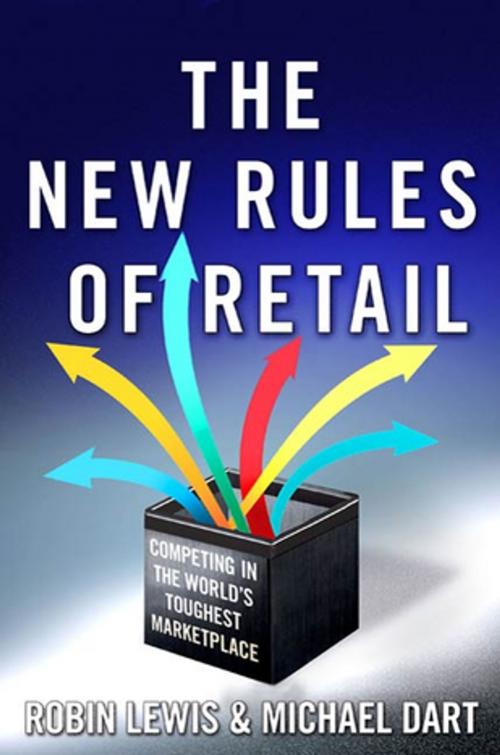The New Rules of Retail
Competing in the World's Toughest Marketplace
Business & Finance, Marketing & Sales, Retailing, Advertising & Promotion| Author: | Robin Lewis, Michael Dart | ISBN: | 9780230112360 |
| Publisher: | St. Martin's Press | Publication: | December 7, 2010 |
| Imprint: | St. Martin's Press | Language: | English |
| Author: | Robin Lewis, Michael Dart |
| ISBN: | 9780230112360 |
| Publisher: | St. Martin's Press |
| Publication: | December 7, 2010 |
| Imprint: | St. Martin's Press |
| Language: | English |
The retail world is undergoing a fundamental transformation. Rapidly evolving technology, globalization, and a saturated marketplace offer consumers instant access to thousands of equally compelling products and services, creating unprecedented levels of expectation. The impact of these changes is so profound that 50 percent of today's retailers and consumer companies will not survive it. Traditional business models will become extinct, and the relationship between vendors and consumers will shift dramatically.
Here, industry experts Robin Lewis and Michael Dart identify the forces behind these changes and look at the retail heroes of today and tomorrow to see how their business models are responding to the modern marketplace. They profile industry giants such as VF Corporation (owner of Wrangler and The North Face), Starbucks, and Ralph Lauren, as well as cutting-edge favorites like Apple, Gilt Groupe, and Amazon, to uncover why some retailers are so successful at reaching today's increasingly elusive and demanding customer while others miss the mark by a mile. What they find are three crucial factors that determine whether businesses win or lose:
*Neurological Connectivity -- creating an addictive, irresistible shopping experience, from preshopping anticipation to consumption satisfaction
*Preemptive Distribution -- using all possible distribution platforms to access consumers ahead of the competition
*Value Chain Control -- vertically integrating control of a company's entire value chain, from creation through point of sale, for maximum delivery on the brand promise
This essential formula, Lewis and Dart argue, is responsible for virtually every retail success story of the past few decades. So while the landscape may never look the same, The New Rules of Retail gives business leaders the tools they need to not only survive, but thrive.
The retail world is undergoing a fundamental transformation. Rapidly evolving technology, globalization, and a saturated marketplace offer consumers instant access to thousands of equally compelling products and services, creating unprecedented levels of expectation. The impact of these changes is so profound that 50 percent of today's retailers and consumer companies will not survive it. Traditional business models will become extinct, and the relationship between vendors and consumers will shift dramatically.
Here, industry experts Robin Lewis and Michael Dart identify the forces behind these changes and look at the retail heroes of today and tomorrow to see how their business models are responding to the modern marketplace. They profile industry giants such as VF Corporation (owner of Wrangler and The North Face), Starbucks, and Ralph Lauren, as well as cutting-edge favorites like Apple, Gilt Groupe, and Amazon, to uncover why some retailers are so successful at reaching today's increasingly elusive and demanding customer while others miss the mark by a mile. What they find are three crucial factors that determine whether businesses win or lose:
*Neurological Connectivity -- creating an addictive, irresistible shopping experience, from preshopping anticipation to consumption satisfaction
*Preemptive Distribution -- using all possible distribution platforms to access consumers ahead of the competition
*Value Chain Control -- vertically integrating control of a company's entire value chain, from creation through point of sale, for maximum delivery on the brand promise
This essential formula, Lewis and Dart argue, is responsible for virtually every retail success story of the past few decades. So while the landscape may never look the same, The New Rules of Retail gives business leaders the tools they need to not only survive, but thrive.















